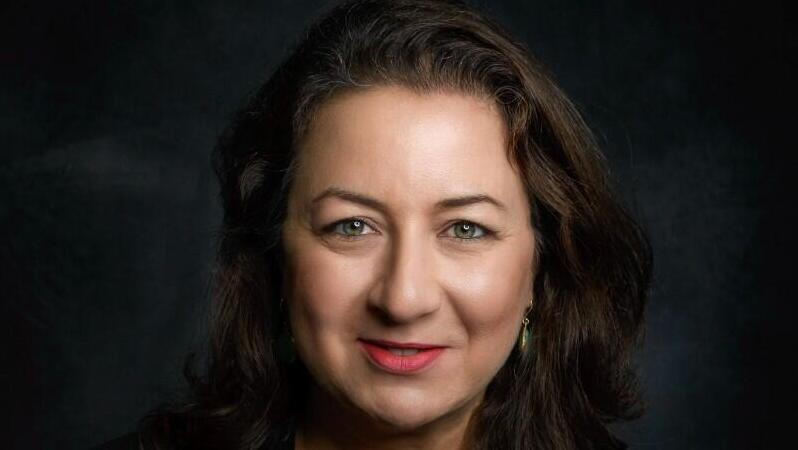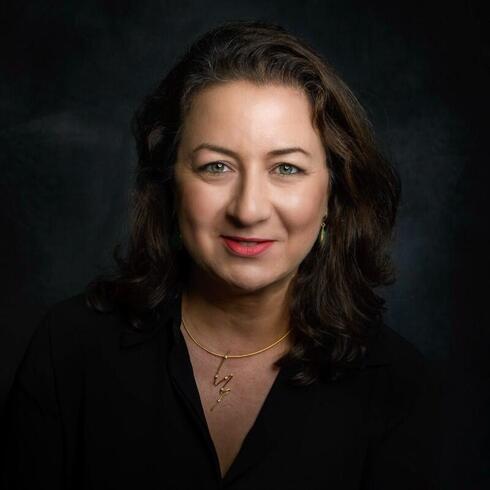
Hanadi Said's remarkable journey from the daughter of Palestinian refugees to the leader of a Haifa-based AI company
The Lebanese-born, Montreal-raised daughter of Palestinian refugees built a successful career in the corporate world in the U.S. and Israel before becoming the CEO of Sensai Networks in Haifa. She spoke to CTech about her improbable life story and operating a company in the north of the country amid the ongoing war.
When Hanadi Said decided to leave her successful career as the Director of Global Risk at Teva Pharmaceuticals to lead a startup, many people thought that she had lost her mind. “People thought that I was crazy when I left Deloitte, especially in Arab society, and even more so when I left Teva. I felt like I needed to prove that I wasn’t crazy. I’m not your typical Israeli CEO: young, male, Ashkenazi, a graduate of 8200 (the IDF intelligence unit). The chances of me making it were low,” she says.
The chances of Said becoming a CEO of an Israeli tech company weren’t just low - they were infinitesimal. Her parents were born in Haifa and the village of Nahf, about five kilometers northeast of Karmiel. Said’s father was born just two weeks before the declaration of the State of Israel, following which his family joined other Palestinian refugees in Lebanon, where Said was born. She grew up in the UAE before moving to Canada at the age of 11, going on to graduate from McGill University in Montreal. Most of her family remains in Canada to this day.
While living in Boston, Said was introduced to her husband, who - in a serendipitous twist of fate - was also born in Nahf. They remained in the U.S. for several years where their first two children were born, before moving to Israel, making their home in her husband’s hometown and her ancestral village of Nahf. Said eventually gained Israeli citizenship.
In both her personal and professional life, Said has thrived amid improbable odds. By the time she was 30, she had completed her BA in accounting, her MBA, been certified as a CPA, was hired at PwC, got married, had two kids, and moved from Canada to Boston to Israel. “My thirties were quieter,” she quips. Quieter, according to Said, apparently means becoming a senior manager at Deloitte in Tel Aviv, where she worked for seven years, going on to lead global risk at Teva, moving to Haifa and having two more children.
Said says that her unique background as a Palestinian-Canadian had both advantages and disadvantages when she entered the job market in Israel. “On the one hand I didn’t have the network that most Arabs here have because I didn’t know anyone. On the other hand, I came with so much experience and I think that people didn’t really know what to make of me,” she says.
When she arrived in Israel, Said already boasted an impressive resume from her work in the U.S., but breaking into Israel’s competitive market wasn’t easy. Despite submitting her CV to all Big 4 accounting firms, it wasn’t until a connection submitted her CV at Deloitte that she got a response. She was offered the position that same day.
Related articles:
After working at Deloitte and Teva, Said felt that the time was ripe to try her hand at entrepreneurship in 2018. “When I decided to leave Teva, I felt like I’d had enough with big corporations. I wanted to jump - I wasn’t afraid,” she says. She decided to interview for a CEO position for a startup originally called 3techs. After being hired, she renamed it Sensai Networks, pivoted the product and moved the company to Haifa.
Sensai Networks focuses on AI-driven root cause analysis for cyber cloud issues. The company uses telemetric health data to detect anomalies in real-time and reduce downtime which can cost companies $538,000 per week. The target audience is made up of innovative companies, early adopters and MSPs mainly in the U.S. and Europe, representing a $26 billion market.
The Haifa-based company’s use of AI sets it apart from tools that claim to use artificial intelligence but only integrate it superficially, according to Said. “As opposed to existing tools who claim to have AI but, in practice, only 20% of the product is AI-based, 90% of our work is AI,” says Said. With two patents secured and two more pending, Sensai Networks is poised to make a significant impact. The startup has raised just over $5 million from angel investors and a grant from the Israeli Innovation Authority.
Five steps ahead
Transitioning from working in a large corporate organization to running a new startup wasn’t without its challenges, and Said felt like she had to do a massive amount of research to prove herself. “I felt like I had to learn a lot about the industry and the ecosystem and competitors, more than a typical CEO would. The trick was to be five steps ahead.”
Women have to do far more work to attain the same level of respect that their male counterparts receive implicitly, she says. “Women entrepreneurs have to do so much leg work and research because they want to counter any assumptions about their right to be there. I’m on the board of directors at a couple of companies and women never come to a meeting unprepared.”
In addition to being among a handful of women CEOs in Israel’s tech industry, Said is one of an even smaller group of Arab women CEOs. Said is very passionate about fostering entrepreneurship among Arab youth, especially Arab women. Her involvement in mentoring programs like those at Tel Aviv University and Hasoub, a non-profit which seeks to foster Arab entrepreneurship, reflects her commitment to helping others break into the industry.
"The north of Israel has so much potential for Arab startups, but we still face barriers," she says. "Even before the war, Arab companies were moving to the U.S. or Europe due to the judicial reform," Hanadi notes.
While Said is optimistic about the value of their offering, she is candid that operating a startup in the last two years has been enormously challenging, especially as a company operating in the north where there has been great disruption to the local tech scene amid the mass displacement of the local population and the ongoing war.
She says that in addition to these concerns the economic impact has led to rising costs of office spaces in Haifa which are now comparable to Tel Aviv. This has added another layer to the challenges experienced by entrepreneurs in the north of the country. "Haifa specifically was really bubbling before the war and the north was such a vibrant center for foodtech especially. The war has set us back by at least a decade."
Despite these setbacks, Hanadi says, "We’re trying to grow entrepreneurship in the north because the potential is there."
